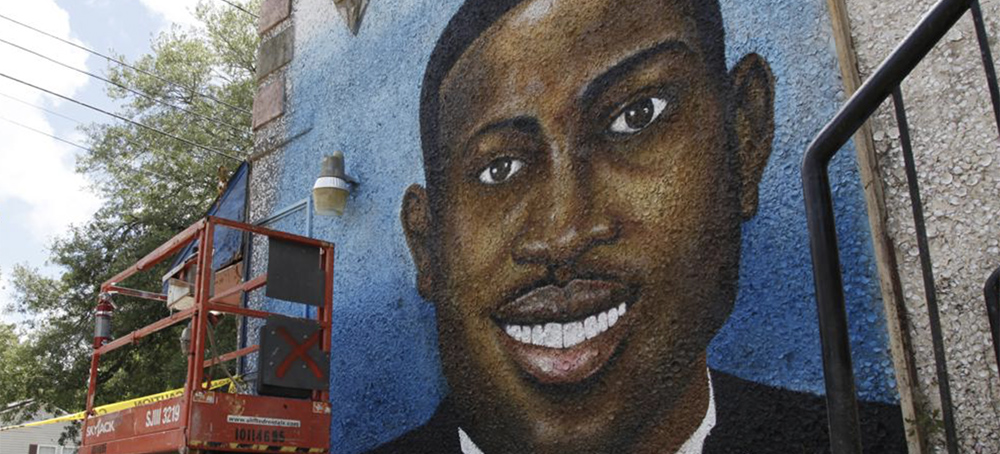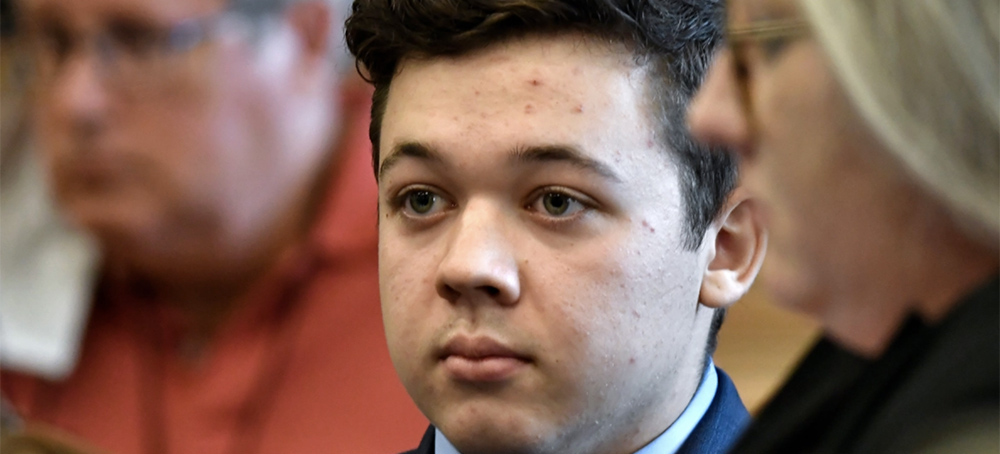Live on the homepage now!
Reader Supported News
At issue is corporate Democrats’ proposal to raise the amount of state and local taxes (SALT) that can be deducted from households’ federal taxes. The $275 billion proposal is now the second largest part of the Build Back Better legislation, even though it would only benefit the 13 percent of Americans who itemize their tax returns.
For months, our reporting has warned that a repeal of the $10,000 cap on such deductions would be a massive tax cut for the superrich, including for key Democratic lawmakers who are championing the measure. The GOP has been hammering Democrats over the proposal, saying it proves Democrats are trying to help the wealthy. Their new video previews how Republicans will depict themselves as populist critics of regressive tax cuts ahead of the 2022 midterm elections, if Democrats pass their current SALT initiative.
But that’s where Sanders — a longtime critic of raising the SALT deduction cap — comes in.
After House Democrats last week passed President Joe Biden’s Build Back Better bill with provisions raising the SALT caps to $80,000, the Vermont senator joined with New Jersey Democratic senator Bob Menendez to propose a more limited version. Though their proposal is not finalized, it is intended to phase out the new tax breaks for those making more than $400,000 a year. The proposal broadly mimics a plan released by the Institute for Taxation and Economic Policy (ITEP).
A new study from the Tax Policy Center (TPC) shows how the plan stacks up.
As the TPC graph illustrates, one of these proposals is clearly better from a policy and messaging standpoint — while all of them would deliver most of their benefits to the wealthiest quintile of the country, the Sanders-Menendez compromise (represented by the yellow bars) would specifically reduce the amount of tax breaks given to the richest of the rich.
“The big difference would be at the very top of the income distribution,” wrote TPC’s Howard Gleckman. “Nearly one-third of the benefit of the $80,000 cap would go to the top 1 percent of households (those making nearly $870,000 or more). But the top 1 percent would get only 0.1% of the benefit if the $10,000 SALT cap is gradually restored starting at $400,000.”
Corporate Democrats Keep Lying
Democratic proponents of simply raising or repealing the cap have continued to deliberately promote fact-free misinformation about their proposal’s effects, pretending the new deductions would mostly help firefighters, teachers, and other middle-class households. Tax data prove that assertion is a flagrant Donald Trump–esque lie — the vast majority of the benefits of proposed new SALT deductions would flow to the very rich.
In addition to blatant lying, Democrats promoting a higher SALT deduction cap have refused to embrace the ITEP plan. That refusal suggests that corporate Democrats’ real goal in raising the SALT cap isn’t to protect the middle class, but is instead to enrich the wealthy blue-state donor class — a charge that Republicans will no doubt intensify if nothing changes.
For his part, Sanders has called the House-passed proposal “bad policy” and “bad politics” — and his initiative seems designed to make the politics at least a bit better, although his plan is hardly perfect.
“If you actually cared about (the middle class), you could set the cutoff at say, $150,000,” Marc Goldwein of the Committee for a Responsible Federal Budget told the Pittsburgh Post-Gazette. “That would still mean the biggest benefit would go to people making $150,000, but it would address that actual middle class population. If you’re setting the [cutoff] at $400,000 or $500,000, you’re not doing this for the middle class.”
The higher caps would be designed to simultaneously limit the benefits to the rich, but also keep enough wealthy-district Democratic lawmakers from voting to kill the entire Build Back Better legislation. And if the Senate adopts the Sanders-Menendez proposal, it would at least deprive Republicans of their new talking points that depict Democrats as more focused on enriching their billionaires than on helping the country.
“Democrats Now Are Easier On Millionaires”
The recent Republican criticism of Democrats’ SALT proposals already has salience amid polls showing most Americans see Democrats as out of touch with the country. At least some of Sanders’s Democratic colleagues seem to see the political problem with passing the $80,000 SALT cap increase, which would give an average tax cut of $16,000 to two-thirds of Americans who make more than $1 million a year.
“Republicans are making the argument vociferously and repeatedly that they’re going to say that Democrats now are easier on millionaires than they were in 2017,” Senator Ron Wyden (Democrat from Oregon) told NBC News.
“It would be preposterous if this legislation ends up cutting taxes for the wealthiest people in America,” Democratic senator Michael Bennet of Colorado told Business Insider.
If Senate Democrats adopt the Sanders-Menendez provision as part of that chamber’s version of the Build Back Better legislation, it would force corporate Democrats into the position of either accepting the measure and letting Biden’s bill pass, or holding up the legislation and fighting exclusively for tax breaks for households that make more than $400,000.
In that scenario, Republican lawmakers and the wealthy would be hoping corporate Democrats choose the latter course. If they do, the GOP would get its political bailout — and wealthy donors would get their financial one, too.
 A painted mural of Ahmaud Arbery is displayed on May 17, 2020, in Brunswick, Ga., where the 25-year-old man was shot and killed in February. Arbery was shot and killed by two men who told police they thought he was a burglar. (photo: Sarah Blake Morgan/AP)
A painted mural of Ahmaud Arbery is displayed on May 17, 2020, in Brunswick, Ga., where the 25-year-old man was shot and killed in February. Arbery was shot and killed by two men who told police they thought he was a burglar. (photo: Sarah Blake Morgan/AP)
The February 2020 slaying drew limited attention at first. But when video of the shooting leaked online, Arbery’s death quickly became another example in the nation’s reckoning of racial injustice in the way Black people are treated in their everyday lives.
Now the men all face a mandatory sentence of life in prison. The judge will decide whether their sentences are served with or without the possibility of parole.
As the first of 23 guilty verdicts were read, Arbery’s father had to leave the courtroom after leaping up and shouting. At the reading of the last criminal count, Arbery’s mother dropped her head and quietly pumped her fists.
“He didn’t do nothing but run and dream,” Marcus Arbery Sr. said of his son. Outside the courthouse, dozens of Black supporters hugged and cried.
The jury deliberated for about 10 hours before convicting Greg McMichael, son Travis McMichael and neighbor William “Roddie” Bryan.
The McMichaels grabbed guns and jumped in a pickup truck to pursue the 25-year-old Arbery after seeing him running outside the Georgia port city of Brunswick. Bryan joined the pursuit in his own pickup and recorded cellphone video of Travis McMichael fatally shooting Arbery.
The father and son told police they suspected Arbery was a fleeing burglar. But the prosecution argued that the men provoked the fatal confrontation and that there was no evidence Arbery committed any crimes in the neighborhood.
“We commend the courage and bravery of this jury to say that what happened on Feb. 23, 2020, to Ahmaud Arbery — the hunting and killing of Ahmaud Arbery — it was not only morally wrong but legally wrong, and we are thankful for that,” said Latonia Hines, Cobb County executive assistant district attorney.
Prosecutor Linda Dunikoski added: “The jury system works in this country. And when you present the truth to people and they see it, they will do the right thing.”
Travis McMichael, 35, stood for the verdict, his lawyer’s arm around his shoulder. At one point, he lowered his head to his chest. After the verdicts were read, as he stood to leave, he mouthed “love you” to his mother in the courtroom gallery.
Greg McMichael, 65, hung his head when the judge read his first guilty verdict. Bryan, 52, bit his lip.
Speaking outside the courthouse, Ben Crump, attorney for Arbery’s father, repeatedly said that “the spirit of Ahmaud defeated the lynch mob.”
Arbery’s mother, Wanda Cooper-Jones, thanked the crowd gathered for the verdict and said she did not think she would see this day.
“It’s been a long fight. It’s been a hard fight. But God is good,” she said, adding that her son would now rest in peace.
Travis McMichaels’ attorneys said both he and his father feel that they did the right thing, and that they believed the video would help their case. But they also said the McMichaels regret that Arbery got killed.
“I can tell you honestly, these men are sorry for what happened to Ahmaud Arbery,” attorney Jason Sheffield said. “They are sorry he’s dead. They are sorry for the tragedy that happened because of the choices they made to go out there and try to stop him.”
They planned to appeal.
Bryan’s attorney, Kevin Gough, said his team was “disappointed with the verdict, but we respect it.” He planned to file new legal motions after Thanksgiving.
Superior Court Judge Timothy Walmsley did not immediately schedule a sentencing date, saying that he wanted to give both sides time to prepare.
In a statement, President Joe Biden said Arbery’s killing was a “devastating reminder” of how much more work the country has to do in the fight for racial justice.
“While the guilty verdicts reflect our justice system doing its job, that alone is not enough. Instead, we must recommit ourselves to building a future of unity and shared strength, where no one fears violence because of the color of their skin,” Biden said.
Though prosecutors did not argue that racism motivated the killing, federal authorities have charged them with hate crimes, alleging that they chased and killed Arbery because he was Black. That case is scheduled to go to trial in February.
The disproportionately white jury received the case around midday Tuesday.
Soon after returning to court Wednesday morning, the jury sent a note to the judge asking to view two versions of the shooting video — the original and one that investigators enhanced to reduce shadows — three times apiece.
Jurors returned to the courtroom to see the videos and listen again the 911 call one of the defendants made from the bed of a pickup truck about 30 seconds before the shooting.
On the 911 call the jury reviewed, Greg McMichael tells an operator: “I’m out here in Satilla Shores. There’s a Black male running down the street.”
He then starts shouting, apparently as Arbery is running toward the McMichael’s idling truck with Bryan’s truck coming up behind him: “Stop right there! Damn it, stop! Travis!” Gunshots can be heard a few second later.
The graphic video emerged two months later, and the Georgia Bureau of Investigation took over the case, quickly arresting the three men.
Defense attorneys contend the McMichaels were attempting a legal citizen’s arrest when they set off after Arbery, seeking to detain and question him after he was seen running from a nearby home under construction.
Travis McMichael testified that he shot Arbery in self-defense. He said Arbery turned and attacked with his fists while running past the truck where McMichael stood with his shotgun.
At the time of his death, Arbery had enrolled at a technical college and was preparing to study to become an electrician like his uncles.
Shaun Seals, a 32-year-old lifelong Brunswick resident, rushed to the courthouse to join the crowd cheering the verdict.
“We just came out to witness history,” said Seals, pushing his 10-month-old daughter in a stroller.
Seals, who is Black, called the convictions a victory not just for his community but for the nation.
“It’s not going to heal most of the wounds” from a long history of inequality, he said. “But it’s a start and shows people are trying.”
 The Texas attorney general, Ken Paxton, speaks at the 6 January rally in support of Donald Trump in Washington. 'We will not quit fighting,' he said. (photo: Jacquelyn Martin/AP)
The Texas attorney general, Ken Paxton, speaks at the 6 January rally in support of Donald Trump in Washington. 'We will not quit fighting,' he said. (photo: Jacquelyn Martin/AP)
Watchdogs and ex-prosecutors have strongly criticised the Republican Attorneys General Association’s $150,000 donation
The group – a part of the Republican Attorneys General Association (Raga) called the Rule of Law Defense Fund – has attracted strong criticism from watchdogs and ex-prosecutors even as Raga looks forward to next year’s midterm elections and many of its members are fighting on numerous fronts against Joe Biden’s agenda.
The controversy around Raga appears to be yet another way that Trump and his supporters have increased their grip on more mainstream elements of the Republican party, and involved them in efforts to further their agenda.
The RLDF, the policy arm of Raga, ponied up $150,000 for the 6 January rally, and arranged robocalls the day before informing people that “we will march to the Capitol and tell Congress to stop the steal,” a message that was probably reinforced by Texas’s attorney general, Ken Paxton, who told Trump’s rally: “We will not quit fighting.”
Watchdog criticism of the Raga policy arm that backed the rally stresses that the group’s funding and robocalls occurred after dozens of court rulings rejected Trump’s claims of fraud. They say it undermines respect for the nation’s laws, as well as departing from the group’s main focus of helping get Republican attorneys general elected.
Further, the rally funding and robocalls by the RLDF sparked resignations of high-level officials, including the Raga chairman, the Georgia attorney general, who broached concern about the group’s direction when he stepped down.
The controversies about Raga’s rally activities come as the group has received a hefty $5.5m from the dark money Concord Fund since the start of 2020, which can help Republican attorneys general in the 2022 elections, and as many Republican attorneys general including Paxton have filed lawsuits to thwart Biden’s energy, immigration and vaccine policies.
The $150,000 check that the RLDF donated to the rally came from the Publix supermarket heir Julie Jenkins Fancelli, funds that ProPublica reported were arranged by the Republican fundraiser Caroline Wren, a “VIP adviser” to the rally who has been subpoenaed by the House committee investigating the 6 January Capitol attack.
Asked about scrutiny of Raga and its big donation for the rally, a House select committee spokesperson told the Guardian that it “is seeking information about a number of events that took place in the lead-up to the 6 January attack, including details about who planned, coordinated, paid, or received funds related to those events”.
Some watchdog groups deplore Raga’s role in the rally. “It was clear before 6 January that the planned rally was based on lies, partisanship, and disrespect for the rule of law,” Austin Evers, the executive director of American Oversight said in a statement.
“That’s what Raga and its corporate sponsors chose to fund. The fact that the rally turned into a violent assault on democracy itself makes Raga’s involvement worse … Raga and its funders should be held accountable.”
Likewise, some ex-prosecutors express strong concerns about the message that the robocalls by Raga’s political arm conveyed.
“Attorneys general are supposed to support adherence to the law,” said Paul Pelletier, a former acting chief of the fraud section at the DoJ. “By the time of the rally every court in the country had affirmed the lawfulness of the election results and had specifically rejected charges of fraud. At that stage, it seems Raga, by urging protesters to ‘stop the steal’, was simply promoting an unlawful attack on our democracy – the antithesis of their mission.”
Raga’s then executive director, who resigned soon after the Capitol attack, denounced the violence by the mob, which resulted in several deaths and ore than 140 injured police officers, and in a sweeping denial stated that neither Raga nor the RLDF had any “involvement in the planning, sponsoring or the organization of the protest”.
But campaign finance watchdogs don’t buy Raga’s denial.
“Raga’s policy arm and other groups helped organize a rally that preceded a riot and an attack on democracy,” said Sheila Krumholz, the executive director of Open Secrets.
The fallout at Raga over its 6 January role increased in April when Chris Carr, the Georgia AG who chaired the overall group, announced suddenly he was stepping down as chair, and noted a “significant difference of opinion” about Raga’s direction in a resignation letter.
Later in April, Raga announced that Peter Bisbee, who had overseen the RLDF when the robocalls occurred, was being promoted to become Raga’s executive director.
Since Biden took office many Raga members, including Paxton and others from Missouri and Louisiana, have filed a wave of lawsuits to block several Biden priorities.
The surge of lawsuits is seen as potentially helpful in the runup to 2022 campaigns when 30 Republican and Democratic attorneys general will be running for re-election after serving four-year terms. In the 2020 elections, Raga for the first time targeted incumbent Democratic attorneys general with ads, and may try to oust Democratic attorneys general who were key Biden allies last year in states such as Pennsylvania and Michigan where Trump and his allies pushed false claims of fraud.
While Raga this year witnessed some corporate backers hold back checks after 6 January, its fundraising was bolstered when it pulled in $2.5m, by far its largest contribution and more than a third of the total raised for the first half of 2021, from the dark money Concord Fund, which the Federalist Society executive Leonard Leo helped create.
Raga also received $3m in 2020 from the Concord Fund.
Raga roped in low-six-figure checks in 2021 from oil and gas giants like Koch Industries and the Anschutz Corp and the Koch-backed Americans for Prosperity.
Over the years, Raga has garnered financial support from industries, including fossil fuels and pharmaceuticals, which GOP AGs have backed in major litigation.
Trump himself is slated to host a fundraiser next month at his Mar-a-Lago club for Paxton, which appears to underscore his gratitude and the tough re-election campaign the former Raga chairman is facing as three Republican challengers to him have emerged. Those opponents are focusing on Paxton’s legal problems: he was indicted on securities fraud six years ago and the FBI reportedly has been investigating allegations of bribery and other misconduct.
Last fall, some of Paxton’s former deputies accused him of improperly helping an Austin real estate developer and donor, prompting more FBI scrutiny.
Paxton, who has not been charged, has broadly denied any wrongdoing. Paxton’s office this August released an unsigned 374-page report rebutting the charges of former aides and claiming he was exonerated, but attorneys for the ex-employees responded the report was “full of half truths, outright lies and glaring omissions”.
 Kyle Rittenhouse appears in court for a motion hearing in Kenosha, Wis., on Friday, Sept. 17, 2021. (photo: AP)
Kyle Rittenhouse appears in court for a motion hearing in Kenosha, Wis., on Friday, Sept. 17, 2021. (photo: AP)
“Just left Mar-a-Lago a little while ago and he should never have been put through that. That was prosecutorial misconduct,” the former president said
“I got to know him a little bit,” Trump said. “He called, he wanted to know if he could come over and say hello. He was a fan. He came over with his mother. That was prosecutorial misconduct. He should not have had to suffer through a trial like that. He was going to be dead. … He’s a really good, young guy. He’s 18 years old. Just left Mar-a-Lago a little while ago.”
Donald Trump Jr. posted an image of the meeting on Twitter. “GOATs,” he wrote.
Trump also cheered when the teen — who has been photographed flashing an “OK” white power sign with the Proud Boys — was acquitted. “If that’s not self defense, nothing is!” he wrote in a statement.
Rittenhouse appeared in a Tuesday night interview as well, on NewsNation Now with Ashleigh Banfield. He said that when he flashed a white power sign, he didn’t know what the sign meant. He also blamed his attorneys for introducing him to the Proud Boys.
“I didn’t know that the ‘OK’ hand sign was a symbol for white supremacy, just as I didn’t know that those people in the bar were Proud Boys,” he said. “They were set up by my former attorney who was fired for putting me in situations like that with people I don’t agree with.”
 Wet'suwet'en land defenders. (photo: VICE)
Wet'suwet'en land defenders. (photo: VICE)
Coastal GasLink is likely trying to weaken Indigenous claims to the land, experts say.
Coastal GasLink (CGL), a subsidiary of TC Energy, is asking Sleydo’, or Molly Wickham, to “provide documentation to ‘prove’ she is Wet’suwet’en, and is seeking conditions that would bar her from returning to her home,” says a statement released by Wet’suwet’en Gidimt’en camp.
The statement says the company is also challenging the status of Hereditary Chief Woos’ daughter, Jocelyn Alec, as a Wet’suwet’en person.
TC Energy told VICE World News in an email that “under no circumstances” would CGL ask people to prove they’re Indigenous. But the company then confirmed its lawyers asked “relevant contemnors,” a person found guilty of contempt, to confirm to the courts that they are Wet’suwet’en.
“This was to ensure access to allow the relevant contemnors to practice their Indigenous rights while under the court’s conditions,” the company said. (VICE World News asked TC Energy what this means and will update the story if we hear back.)
Sleydo’ and Alec are two of about 30 people arrested last week after a two-day RCMP raid on Wet’suwet’en territory. Earlier this month, pipeline resistance leaders with the Wet’suwet’en Gidimt’en Clan evoked an eviction order against CGL workers, giving them eight hours to “peacefully” leave the territory. After the deadline passed, they seized a Coastal GasLink excavator and dug up a road—the only route that gave access to several work sites and camps.
Four days later, police moved in and enforced a B.C. Supreme Court injunction order, which protects the pipeline’s development, and made the arrests. Multiple people, including Sleydo’ and Alec, are appearing in court Tuesday, where they’ll face conditions of their release.
“Coastal GasLink’s proposed conditions of release are punitive, unreasonable, and, in targeting Sleydo’ and Jocelyn, completely racist and sexist,” said Jennifer Wickham, a Wet’suwet’en spokesperson and Molly Wickham’s sister.
“Allowing a private corporation to determine two Indigenous women’s identities and allowing this corporation to deny our inherent rights to be Wet’suwet’en on our territory is a very dangerous precedent,” she said.
Staff lawyer Eugene Kung with West Coast Environmental Law told VICE World News that he doesn’t know CGL’s exact motivations, but he said, “it would be my guess they are trying to weaken a claim to being on the land, and any restrictions resulting from the (legal) proceedings, including conditions, could be challenged on that basis.”
“My guess is that they are nervous and trying to throw anything at the wall and hope it sticks, which to me shows a little bit of desperation,” Kung said.
University of Alberta professor Kim TallBear told VICE World News it’s not Coastal GasLink’s place to ask whether a person is Indigenous, unless it's for hiring purposes.
“Who is CGL to ask? If they were offering a job to somebody who was Indigenous and there was a preference for that, but this is not their place to ask,” TallBear said. “I don't even know why anyone is entertaining this demand or request… Settlers will stick their noses into this stuff wherever they can, but it’s not their business.”
According to Jennifer Wickham, Sleydo’ and Alec are facing charges of civil contempt for breaking the injunction, while CGL is seeking conditions of release, including a vast exclusion zone that would deny arrestees access to a large portion of their Wet’suwet’en territory.
TC Energy said it respects individual rights to “lawfully, safely, and peacefully express their point of view.” The company said it relies on authorities to safeguard individual rights in the area when others “act outside the law.”
“When the safety of our workforce is compromised and our ability to build our fully authorized and permitted project is stopped by individuals acting outside the law, we must rely on the authorities to ensure that the rights of all individuals in the area are respected and protected,” the statement says.
But Wet’suwet’en hereditary chiefs never ceded or surrendered their territory to settlers, and Wet’suwet’en people maintain that colonial courts have no jurisdiction over their territory.
Many, including Gidimt’en Clan, also say Wet’suwet’en hereditary chiefs have a constitutional right to reject energy projects on their territory anyway. The Supreme Court of Canada’s 1997 Delgamuukw decision affirmed Wet’suwet’en land title rights, but also said they are “not absolute.”
For years, Wet’suwet’en hereditary chiefs, land defenders, and allies have been on the front lines, blocking the $6.6 billion natural gas pipeline. Wet'suwet'en elected officials have approved the pipeline project, but hereditary chiefs, viewed by many as the rightful leaders, haven’t.
Last week’s RCMP raids mark the third year in a row of militarized police enforcement—by canine units and assault rifles—targeting resistance camps on site.
In addition to dozens of land defenders, two journalists were arrested.
 Vladimir Putin. (photo: Sputnik/Mikhail Metzel/Reuters)
Vladimir Putin. (photo: Sputnik/Mikhail Metzel/Reuters)
The Kremlin’s propaganda campaign at home is getting people ready for a ‘reluctant’ move into Ukraine.
“World War III is knocking at our door,” warned one top propagandist.
Whether or not the Kremlin is planning to speed up its creeping assault against Ukraine’s Donbas region in the near future is a mystery even to the most knowledgeable experts with close access to Russian President Vladimir Putin. Nonetheless, they eagerly fulfill the Russian leader’s express intent to keep NATO—and the West in general—in a state of hypervigilance.
Ukraine’s non-affiliation with NATO remains at the top of the Kremlin’s long wish list, with Putin demanding “serious long-term guarantees that ensure Russia’s security” in the region. The real issue is not that NATO presents an acute threat to the Kremlin, but rather that its involvement stands in the way of Russia swallowing additional Ukrainian territories. Putin’s objectives with respect to subverting Ukraine remain the same, with two different paths to getting there: by securing Ukraine’s submission and undermining its sovereignty through unwarranted concessions from the West, or by escalating Russia’s military aggression.
State TV propagandist Dmitry Kiselyov—notorious for boasting that “Russia is the only country in the world that is realistically capable of turning the United States into radioactive ash”—explained that Moscow’s moves are explicitly designed to affect the U.S. and NATO. On his Sunday show, Vesti Nedeli, Kiselyov said that Russia’s tests of its Tsirkon hypersonic cruise missile and its recent anti-satellite test were “arguments” to reinforce Russia’s “red lines” with respect to Ukraine.
Kiselyov boasted: “By stepping over the “red line,” NATO risks losing all 32 GPS satellites at once, which will blind all their missiles, planes and ships, not to mention the ground forces. Americans are paying attention to this—they can’t afford not to.”
State TV experts equivocate between two conflicting messages: on one hand, claiming that Russia is not planning to invade Ukraine, but then immediately pointing out that “the Ukrainian problem” could be solved “very quickly,” due to Russia’s superior military might. They argue that the U.S.-led NATO needs to be taught a lesson and brag that “underpaid and underfed American soldiers” are no match for the Russians. Blustery proclamations are promptly followed up by the claim that none of the participants are interested in a hot war.
Igor Korotchenko, a member of the Russian Defense Ministry’s Public Council and editor-in-chief of the National Defense magazine, said the military movements that concerned Western and Ukrainian officials served as an intentional signal, designed to elicit a reaction. In a message addressed to U.S. Secretary of State Antony Blinken on the state TV show 60 Minutes this Monday, Korotchenko said about Russia’s military buildup: “If your satellites are seeing this, that means it is being shown to you. Any American military analyst at the Pentagon can tell you that. You don’t know—and won’t know—Russia’s real plans and goals. Your HUMINT [intelligence gathered by means of interpersonal contact] is either blocked, neutralized, or is feeding you disinformation, in course of the operations conducted by Russian intelligence services. You need to relax and aim towards constructive interaction.”
Calling out the U.S. for being concerned with Russia’s activities, the rabidly anti-American host of 60 Minutes, Olga Skabeeva, insisted: “Mind your own business.” However, Russian state media does not abide by the same principles, with obsessive interest in American elections and internal affairs, dwelling on everything from QAnon and turkey prices to the sentencing of Jacob Chansley and the acquittal of Kyle Rittenhouse. America is at the forefront of the Kremlin’s attention, so resorting to provocation in order to be acknowledged as an equal and to extract concessions would almost make sense.
During a speech to Russian diplomats last week, Putin complained: " We understand that our partners are very peculiar and, to put it mildly, do not take all our warnings and talks on red lines seriously." He added: “Our recent warnings have had a certain effect, tensions have risen... It is important for them to remain in this state for as long as possible.”
Russian state TV pundits and propagandists took Putin’s message to heart and snapped into action. Appearing on 60 Minutes the day after Putin’s speech, Igor Korotchenko warned: “Let’s be straightforward about it: World War III is knocking at our door. It will come from the direction of Poland and Ukraine.” Korotchenko argued that Russia can fight back against alleged Western provocations by demonstrating its military might: “We need to grab the West by the udders, they should feel our hand and we should feel their fearful pulse... The best defense is an offense... Our military fist should be at the face of every Western politician.”
On state TV show Sunday Evening with Vladimir Soloviev, lawmaker Oleg Morozov asserted: “The level of relations is so catastrophically low... that the possibility of a local hot conflict in the Ukrainian region is higher than ever. If this conflict takes place, it will break the entire construct of world relations. It will redraw the geographical map of Europe and change its political lines. The result will be what was promised by our president: the end of Ukrainian statehood... It will lead to total sanctions against Russia and the breakdown of all negotiations.”
Adding fuel to the fire, host Vladimir Soloviev asked: “Then why should we stop at Ukraine? Why not solve all of our problems at once?” Soloviev argued that since it’s unlikely that the major world powers would resort to nuclear war, Russia can move forward with achieving its objectives undeterred: “If we have to end up behind the Iron Curtain, why not collect some more lands and peoples first?”
The head of the State Duma Committee on Defense, Andrei Kartapolov, suggested on the same show that the Ukrainian problem could be solved militarily in a matter of hours. He said: “If they intend to turn us into a pariah, there is no reason to stop at Ukraine... If they want to make us tremble, we should make them tremble.” Morozov chimed in with a sly grin: “Which is what Putin said. Keep them on the edge of their seat.”
 Janis Elliott lives in the unincorporated Iowa town of Avon. She put a reverse osmosis system in her home after she found nitrate levels almost double the EPA health standard.(photo: Clay Masters/Iowa Public Radio)
Janis Elliott lives in the unincorporated Iowa town of Avon. She put a reverse osmosis system in her home after she found nitrate levels almost double the EPA health standard.(photo: Clay Masters/Iowa Public Radio)
Nitrate finds its way into surface and groundwater that eventually becomes drinking water. Studies have linked ingesting too much nitrate in drinking water to cancer and that concerns the retired teacher. Too much nitrate also can cause blue-baby syndrome and birth defects.
She points to neighbors' houses where people have died from cancer. Her husband had prostate cancer (and overcame it).
The Environmental Protection Agency's health standard is 10 parts per million.
One year, the nitrate level got up to 19 parts per million.
"Which is almost double the federal legal limit for drinking water," Elliott says. "So, we were drinking poison for a year."
Elliott invested in a $1,000-reverse osmosis system in her home to treat the water her family drinks. She questions whether the nitrates in the water caused cancer among her husband and neighbors.
"Who knows? I do know that drinking that water for years did not help," she says.
Climate change and polluted sources for drinking water are creating an increasingly challenging problem in farm country. Des Moines Water Works is preparing for a very wet spring after almost two years of drought. While nitrate occurs naturally, it is also a byproduct of nitrogen fertilizer and farmers in the Midwest use lots of it to grow corn and soybeans. That finds its way into surface and groundwater.
The drought makes it more difficult for utility companies to source water
Larger water utilities – like Des Moines Water Works – have been treating nitrate for years. In the 1990s, the utility built a facility to extract nitrates from the rivers. Water Works gets most of its water for its 600,000 ratepayers from the Raccoon and Des Moines Rivers, which converge downtown.
"The drought obviously makes it more difficult for us to source water," Des Moines Water Works CEO and General Manager Ted Corrigan says. "This summer, especially we had concerns about toxins on the Des Moines River and we had concerns about available flow on the Raccoon River."
Add to that, swings in the weather brought on by climate change are adding another problem.
"We also see issues with the quantity of nutrient that is stored on the landscape because of the drought," Corrigan says. He says all that excess nutrient stored in the soil upstream makes for the potential for extremely high nitrates flushing into the rivers.
"It's not a sustainable situation," Corrigan says.
Dozens of other public water utilities in Iowa also treat drinking water for nitrates. Water Works has upgraded its facility and constructed deep wells to store more water and it's looking at building additional groundwater wells. Federal clean water laws exempt agricultural runoff. The utility filed a lawsuit five years ago to try and amend the Clean Water Act, so farmers would have to implement more environmental practices but it was ultimately dismissed.
Farmers know what tools to use but they are costly and cumbersome
More than 90 miles upstream from Des Moines, Mark Schleisman farms with his father and kids in Calhoun County near the Raccoon River. He has a number of water quality projects on his diversified farm. He has buffer strips and plants cover crops. He even has a wetland on his property that is hooked up to an irrigation system so he can re-use water from his fields.
"It helps the river because we're keeping nitrates here, reducing them, but also helps me because I'm getting water on this field and I'm reusing the nitrogen," Schleisman says.
He says farmers know what tools to use but they are costly and can be cumbersome.
Politicians in Iowa say the state's farmers are making progress since 2013 when the state issued the Iowa Nutrient Reduction Strategy: a list of environmental practices farmers are encouraged to implement.
"We've got a long ways to go and I don't sugar coat that at all," Iowa Secretary of Agriculture and Land Stewardship Mike Naig said earlier this year on the Iowa PBS show Iowa Press. "The strategy calls for a 45% reduction in nitrogen and phosphorous loss off of Iowa farms and landscape but the evidence is moving in the right direction."
University of Iowa geographical and sustainability sciences professor, Silvia Secchi, says the reduction from farms is not moving fast enough. She argues that the federal farm bill essentially subsidizes farmers to pollute.
"What we need to do is we need to ask for some environmental outcome for all the money we give to farmers," Secchi says. "That will reduce the load so that the utilities don't have to spend so much money cleaning up the water that we drink."
And Secchi says it's a bigger concern for utilities in smaller cities and residents who rely on their private wells that may have nitrate-tainted water. The challenges in Iowa could soon be felt in other cities surrounded by farmland especially as they increasingly face drastic weather swings that effect drinking water.
Follow us on facebook and twitter!
PO Box 2043 / Citrus Heights, CA 95611



No comments:
Post a Comment